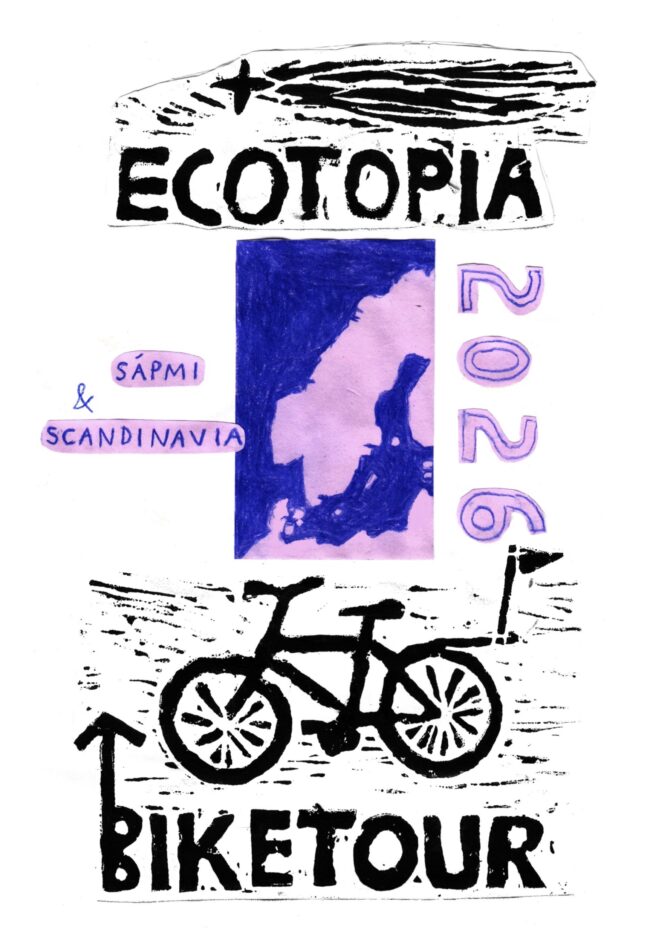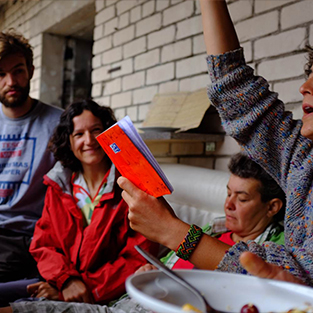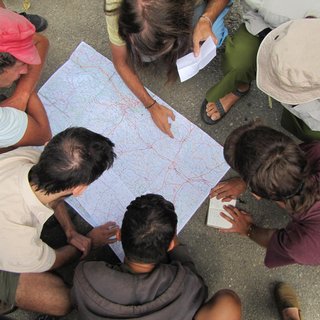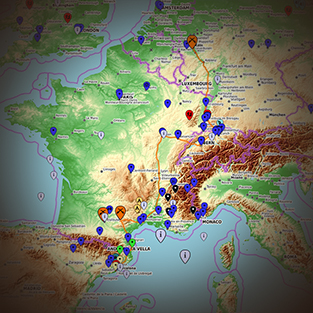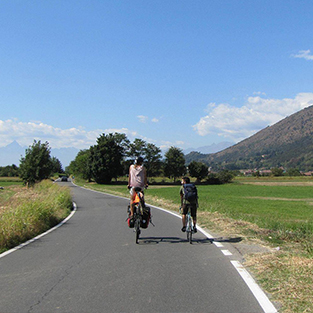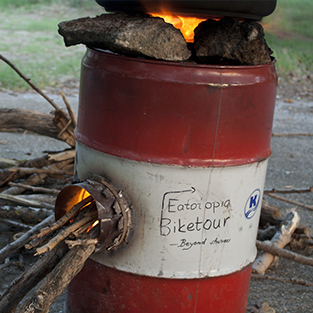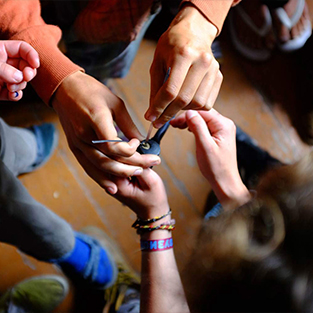Ecotopia Biketour
We try to make the tour as inclusive as possible for any level of fitness or experience with bike touring. We cycle a maximum of 30–70 km per day (depending on the hills), and on average half of the days we stay in a place without cycling. Our experience is that almost everyone can manage this, but there is the possibility to shorten the distances if we discover that it is too much. People cycle in small groups or alone, at whatever speed suits them, and many people like to take it slow and take lots of breaks. A detailed route plan for the day is shared in the morning, arrows are drawn with chalk on the road at every turn, and if you get lost you can always call the Biketour phone. If you have a shitty bike, you will not be the only one, and we enjoy supporting each other if something breaks. We make sure that the last people to leave carry a toolbox, a phone and a first-aid kit in order to assist if anything goes wrong on the road.
Read more about what the Ecotopia Biketour is. If you would like to get an insight into the organisation or just ask a question, contact us.
Ecotopia Biketour 2026
Ecotopia Biketour 2026 will happen in Sápmi and Scandinavia.
Read more about our plans on the page.
Latest blog posts
Mud, rain and some bins full of food
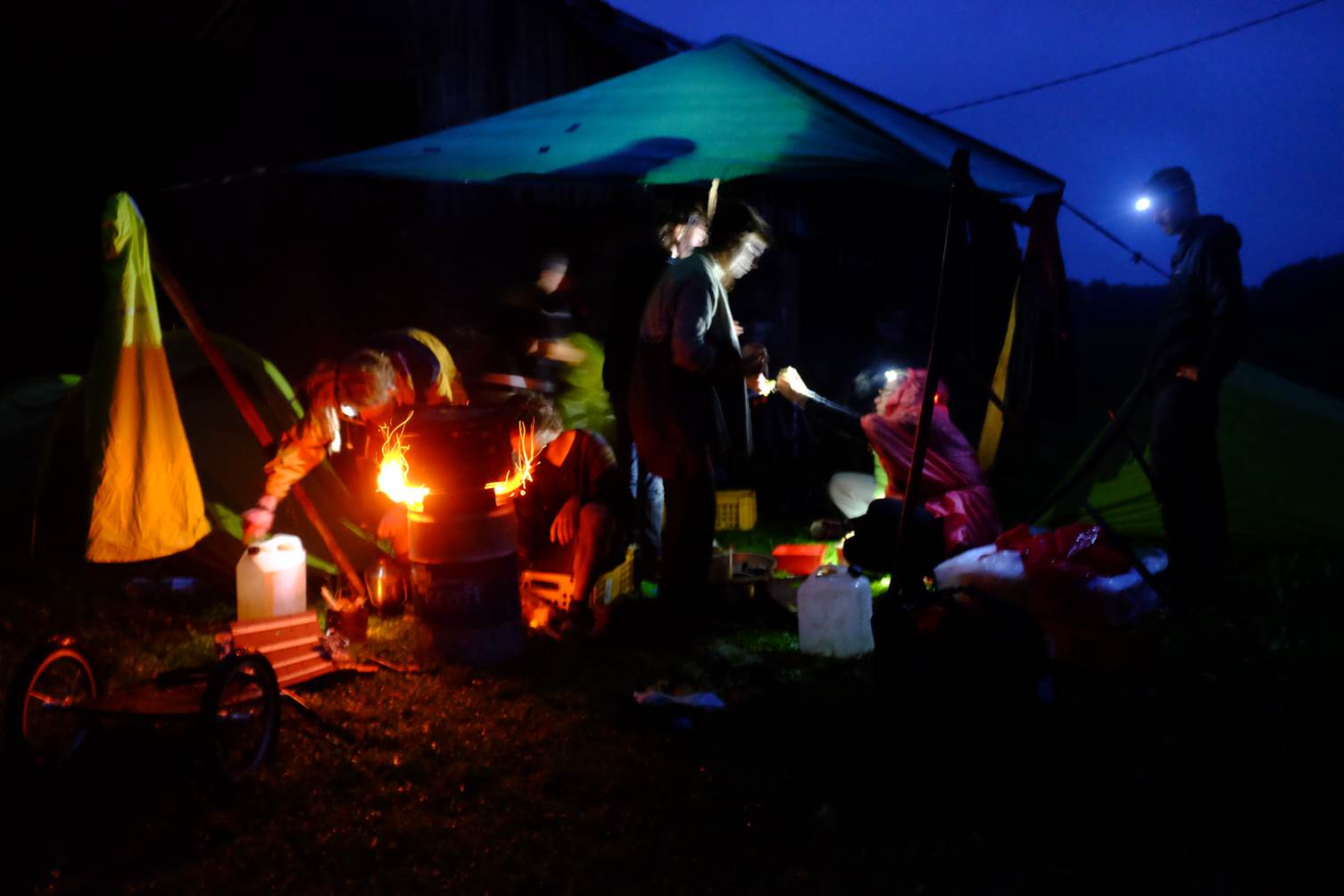
Sorry this entry is not available in this language For the sake of viewer convenience, the content is shown below in the alternative language. You may click the link to switch the active language. After Kurava, we had a really crazy cycling day. As it was already raining for the last several days, we were quiet happy that only little drops are falling from the sky. It almost felt like good wheather! (Actually our last host told us something that it would be the most rainy summer in latvia since 15 years…) But it was not cold, so who cares.…
Kaunas=Carmass
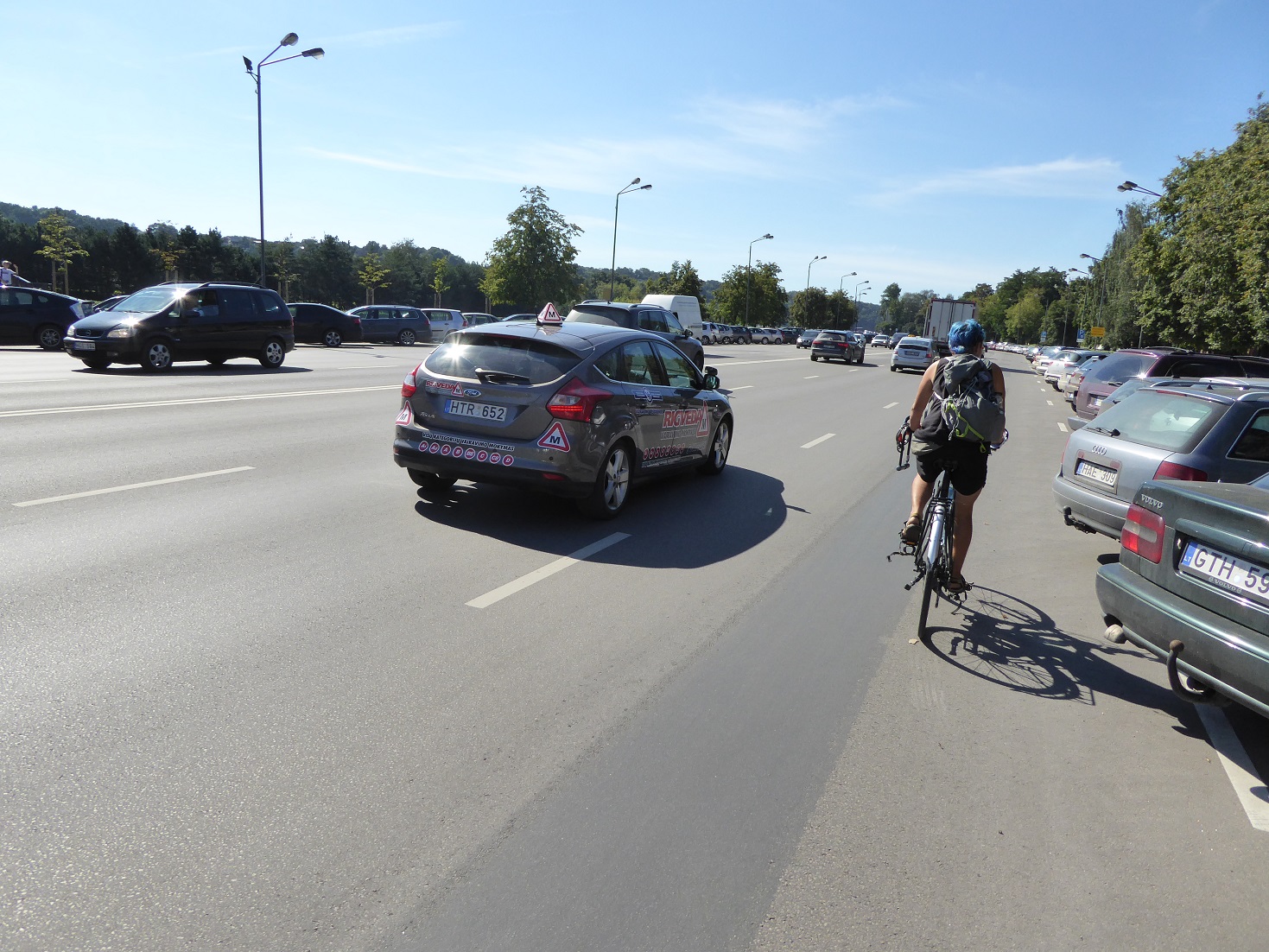
Sorry this entry is not available in this language For the sake of viewer convenience, the content is shown below in the alternative language. You may click the link to switch the active language. We met quite a bunch of nice alternative minded people on the Sapfo-Festival. Most of them didn’t even understand the concept of travelling by bike. How can you carry all the stuff that you need? The festival happened 45km far from Kaunas where many people who joined the festival live. Only two of them arrived by bike. In Kaunas, lets better call it Carmass, cycling was…
Cita Abra, el viejo molino
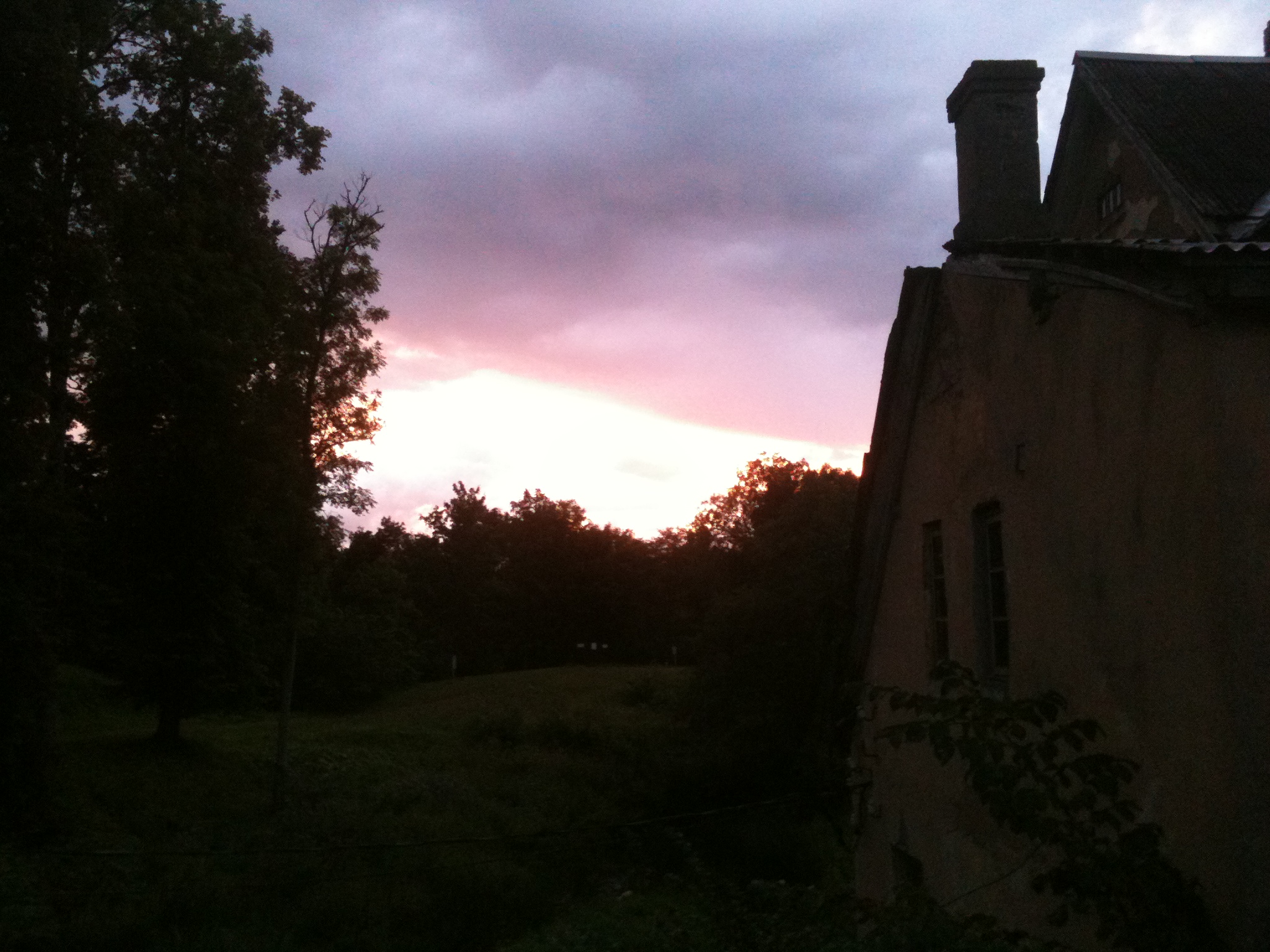
Sorry this entry is not available in this language For the sake of viewer convenience, the content is shown below in this site default language. You may click one of the links to switch the site language to another available language. Cita Abra es un proyecto naciente, es un molino de agua en construcción, en reconstrucción, en transformación… su estructura y su infra permiten albergar actividades y gente: grupos, compañías, colectivos, y biketours :) Por él fluye el agua, generando energía, lo que explica las incontables lámparas encendidas que nos esperaban en cada uno de esos oscuros y espaciosos cuartos…
Klaipeda – Liepaja / Radi Vidi Pats
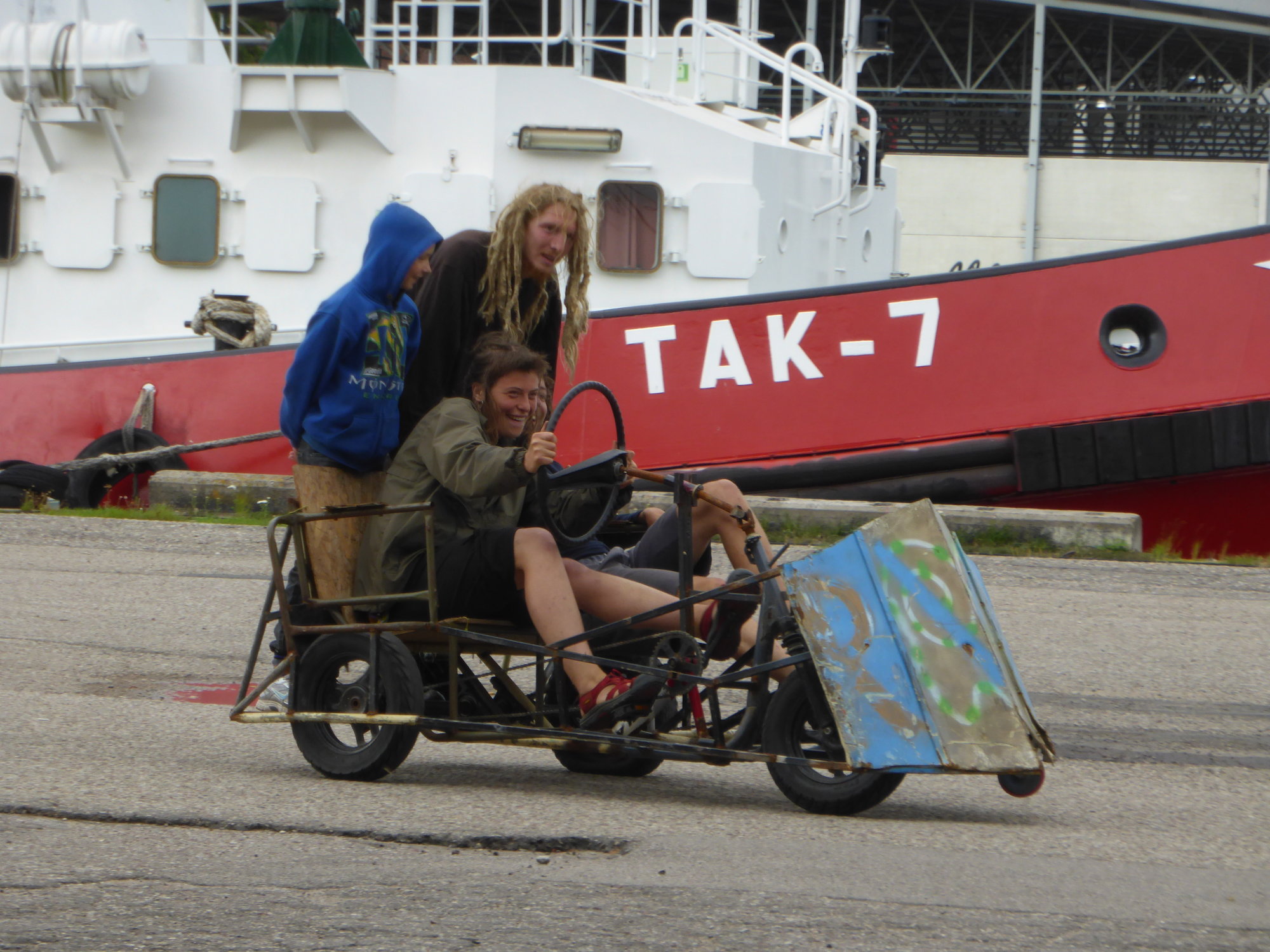
Sorry this entry is not available in this language For the sake of viewer convenience, the content is shown below in the alternative language. You may click the link to switch the active language. Hello bike tour blog followers, this is Jacob typing. I joined the group a few days ago in Palanga. What follows is an account of my first few days cycling with the bike tour. After the stress of hauling a bike across Europe finding three scruffy looking cyclists stood by some trees in Palanga was a joy and the question ‘shall we cycle’ only had one…






